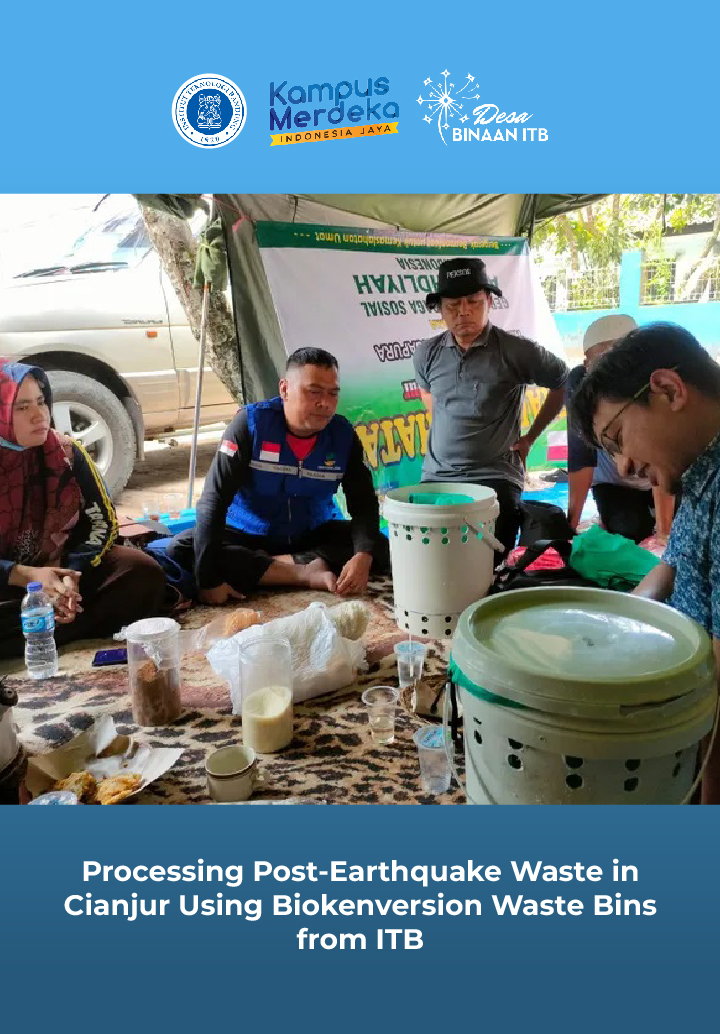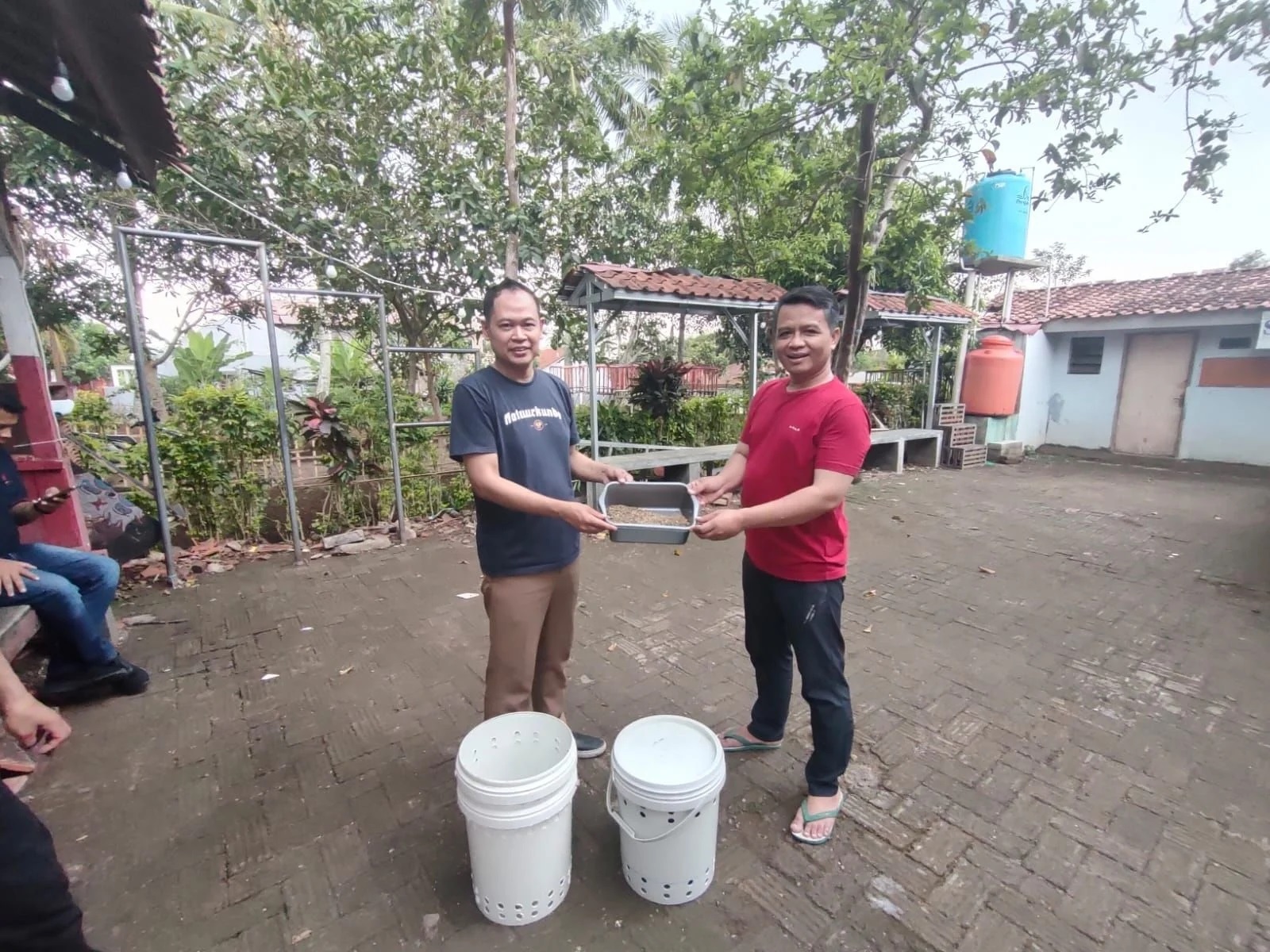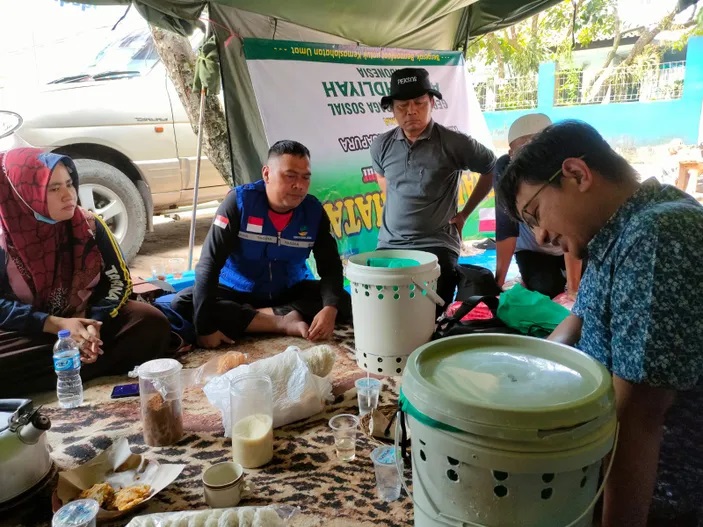

ITB introduced a program for processing organic waste at the household and communal levels using biokenversion waste bins in the earthquake-affected area of Cianjur in Sukaratu Village, Gekbrong District, on Saturday, November 4, 2023.
This activity is part of the community service efforts for the earthquake-affected areas in Cianjur. The community service team is led by Dr. Acep Purqon and involves students from the Physics Department at ITB, with several integrated activities.
This initiative is also a continuation of previous assistance activities since the beginning of this year, which involved local residents, youth, mothers, and local community leaders.
Various problems arose after the Cianjur earthquake, including the accumulation of waste. Some of the waste was disposed of in rivers, creating new issues elsewhere.
Another issue is the decreasing depth of wells in some locations after the earthquake. Therefore, various technologies are needed to find solutions for accessing clean water.
Acep Purqon introduced how disaster physics and environmental science are related to sustainable earth solutions.
One of the actions taken is the management of organic waste through biokenversion waste bins to produce biomass for fertilizer and animal feed. This innovation has also been developed by one of the members of this community service team, Dr. Ramadhani Eka Putra.
In parallel, they provided guidance and mentoring for the cultivation of Trigona bees to generate income for existing farmer groups. Previously, farmers in this area engaged in various agricultural activities such as rice cultivation, sheep farming, vegetable cultivation, etc.
Residents were very enthusiastic about participating in this waste management training conducted by ITB students.
In terms of a circular economy, waste processing and waste management will be part of a supply chain with precision farming, smart farming, and integrated farming. Because the feed from the processed waste for feed and fertilizer will eventually support local self-reliance.
As is known, each place has its own unique microclimate. Different regions in Indonesia also have their own uniqueness and become the wealth of the archipelago, such as in ethnofarming. Some of these ideas can evolve into startups, partnerships with companies, partnerships with local governments, become village-owned enterprises (BUMDes), etc.
This increasingly highlights the specific treatment of each plant, especially for certain types of plants, which are very different between subtropical and tropical regions. This tropical characteristic must become the technology and strength of tropical farming research for biomass engineering.
Partial solutions like this are actually links in the solution chain for an area from upstream to downstream. From waste, to agriculture, to food, and the cycle continues.

